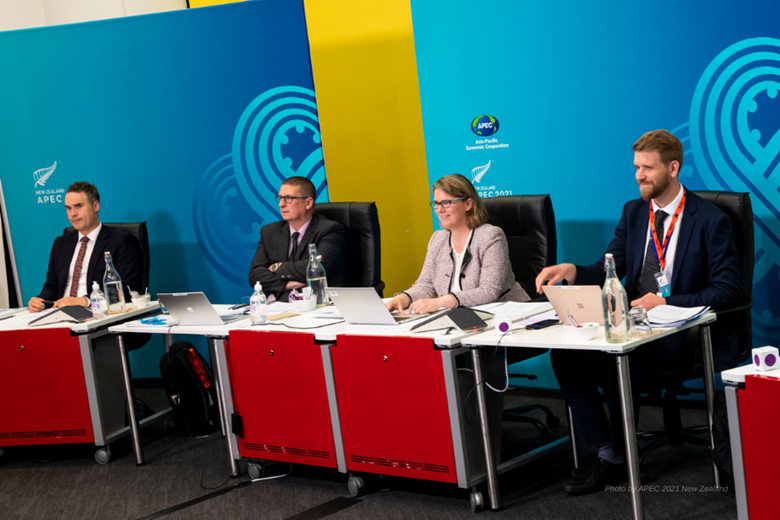APEC Strengthens Fiscal and Budget Sustainability

Finance and central bank deputies from the 21 APEC member economies are laying the groundwork for sustainable fiscal management to boost recovery, following the extraordinary rollout of policy levers to help mitigate against the devastating impact of the COVID-19 pandemic to the people and businesses in the region.
“As member economies have worked to respond to the economic, social and health impacts of the pandemic, finance ministries around the region have been at the heart of government decision-making,” said Dr Caralee McLiesh, the Chair of APEC’s Finance and Central Bank Deputies’ Meeting 2021. She noted that APEC’s commitment to multilateral cooperation and consensus building make it the perfect place for finance ministries to share their experiences and learn from one another.
At the virtual two-day meeting held on Wednesday and Thursday, policymakers debated the costs and benefits of the stimulus measures that finance ministries and central banks put in place. They also identified the role they can play in driving a strong recovery, as well as addressing longer-term systemic challenges.
In her opening remarks, Dr McLiesh, who is also the Secretary and Chief Executive to New Zealand’s Treasury, highlighted the importance of reinforcing supportive macroeconomic and structural policies, as well as reassessing the future of fiscal policy and budget systems to drive an inclusive and sustainable recovery.
The impact of the pandemic forced member economies to change their budgets in order to respond to the pandemic, moving quickly to get money where it was urgently needed. The reduction in economic activity and the unprecedented fiscal support has also led to sharp increases in public debt in many economies.
Dr McLiesh added that there was a rich discussion on the importance of policies to support women, youth, the elderly, rural areas, vulnerable groups and small and medium sized businesses through the recovery. Policies that revitalize consumer demand, revive business confidence and investment and create and retain jobs remain crucial for member economies.
“The fiscal pressures resulting from the response to COVID-19 and other long-term challenges make effective structural reforms all the more important,” she explained. “Structural policies are central to addressing the underlying causes of inequality and minimizing long-term damage to human capital.”
In addition, policies in support of green growth and the digital economy are also important to boost recovery and sustainability.
The discussion from the two-day finance and central banks deputies’ meeting will be brought forward to the APEC Senior Finance Officials’ Meeting scheduled for June this year. Their recommendations will be provided to APEC finance ministers when they meet later in October this year.
For more information about the schedule of the APEC 2021 New Zealand meetings, visit our event calendar page.
For further details, please contact:
Cas Carter +64 21 341 509 at[email protected](in New Zealand)
Masyitha Baziad +65 9751 2146 at [email protected]
Michael Chapnick +65 9647 4847 at [email protected]

